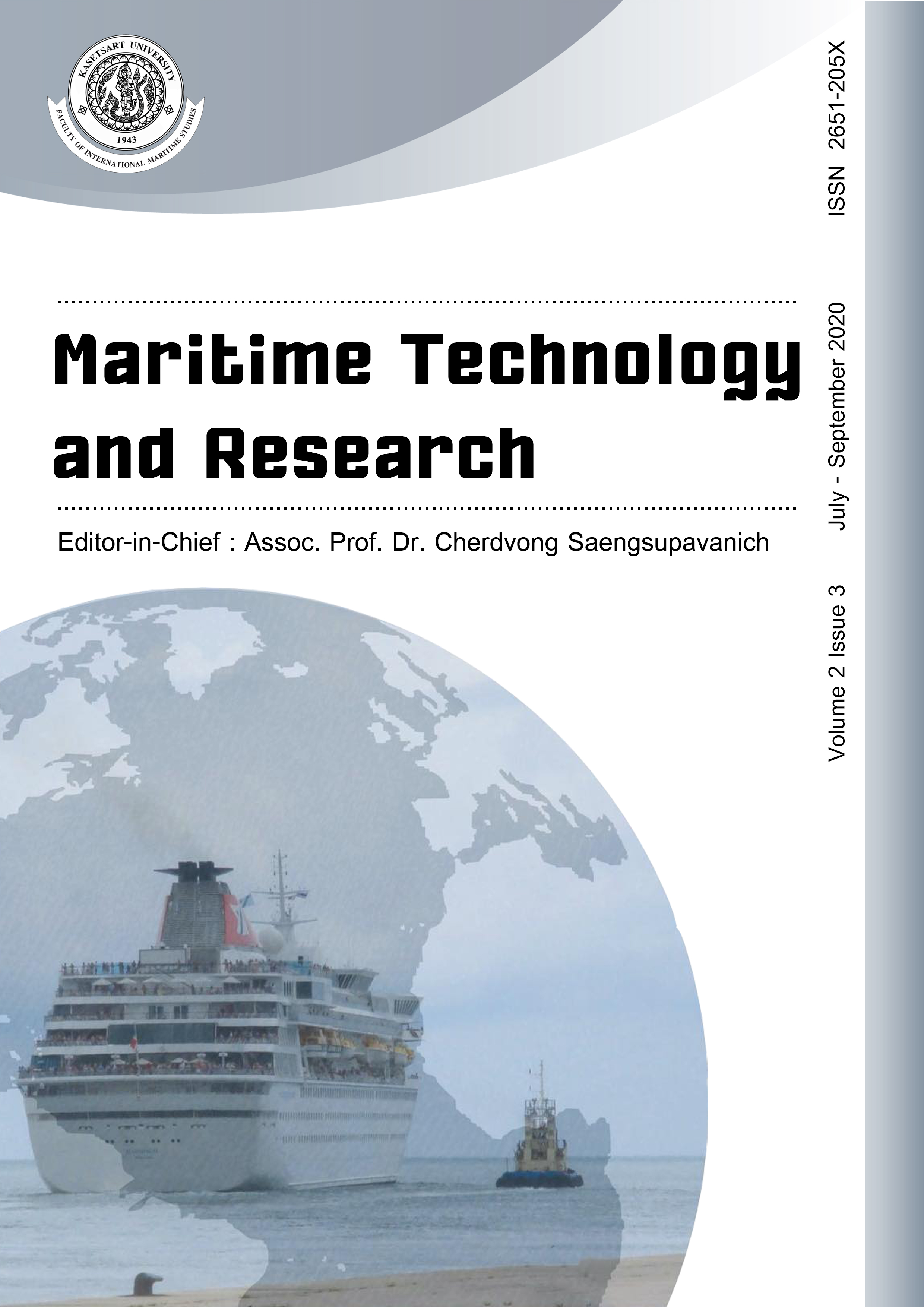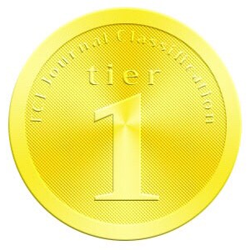Enhancing oil spill response capacities in the South Baltic Sea region via cross-border utilization of biodegradable oil binders
DOI:
https://doi.org/10.33175/mtr.2020.238164Keywords:
South Baltic region, Oil spills, Biodegradable oil binders, Oil pollutionAbstract
Occurrences of oil spills are responsible for very significant environmental degradation; they are more likely to happen in areas with dense shipping traffic, or in the close vicinity of transport pipelines and/or other infrastructures used for production and processing purposes. Without international co-operation, individual countries often lack sufficient resources and assets to successfully respond to large-scale oil spill incidents. This can be related to the vast quantities of oil involved in those incidents, or the lack of necessary special equipment for dealing with the tasks at hand by the country under the need to respond. For the successful resolution of oil spill incidents, close and effective international co-operation-especially between neighboring countries that usually “share the burden” of oil pollution-is a vital necessity. On this basis, the South Baltic Oil (SBOIL) project aims to strengthen the existing oil spill response capacities in the South Baltic region, introducing a cross-border spill response tool based on the new ‘green technology’ of biodegradable oil binders (BioBinders). In order for this new concept to be implemented, it is necessary to examine the international and national regulations and guidelines with reference to sorbent use and the exchange of oil spill equipment in the area of interest, and also analyze the national oil spill contingency plans of the different countries involved in the project. After investigating the legal requirements for the utilization of BioBinders in the South Baltic region, the analysis at hand presents the outcomes of a Table Top Exercise that was based on a realistic oil spill scenario in the wider region. This exercise tested the compatibility of international/national/regional plans regarding the use of BioBinders and examined the topics of recovery and waste management, including alternative techniques available for oil spill response. The results suggest that the use of BioBinders is promising, and represents a response option to improve the existing oil spill response capacities in the South Baltic region; the main challenge lies with the difficulty in dealing with waste management, mainly because of the current legislation in place within the participating countries.
References
Baltic Oil Spill Exercise (BOILEX). (2011). Final exercise report, Nynäshamn, Swedish Civil contingencies agency. Retrieved from https://projects.centralbaltic.eu/images/files/result_pdf/EnSaCo_result3_BOILEX_Final_Report.pdf
BRISK. (2011). Risk of spills of oil and hazardous substances. Retrieved from https://www.brisk.helcom.fi/risk_analysis/spills/en_GB/spills
Chapman, H., Purnell, K., Law, R. J., & Kirby, M. F. (2007). The use of chemical dispersants to combat oil spills at sea: A review of practice and research needs in Europe. Marine Pollution Bulletin, 54(7), 827-838. doi:10.1016/j.marpolbul.2007.03.012
Christensen, L., & Carpenter, A. (2015). Oil pollution in the waters of the Danish Sector of the North Sea. In: Carpenter, A. (Ed.). Oil Pollution in the North Sea. The Handbook of Environmental Chemistry, Vol 41, Springer, Cham.
Christodoulou, A., Dalaklis, D., & Nilsson, H. (2019). South Baltic Oil Spill Response through clean-up with biogenic oil binders: The SBOIL handbook. Final SBOIL Project, Rostock, Germany.
Dalaklis, D. (2017). Safety and security in shipping operations. In: Visvikis, I., & Panayides, P. (Eds.). Shipping Operations Management. WMU Studies in Maritime Affairs, 4, 197-213. doi:10.1007/978-3-319-62365-8_9
Dalaklis, D., Besikci, E. B., Larsson, J., Christodoulou, A., Johansson, T. M., Palsson, J., Nilsson, H., Saathoff, F., Siewert, M., Juszkiewicz, W., Gucma, L., Łazuga, K., Kasprowicz, M., & Peach, D. (2019). South Baltic Oil Spill response through clean-up with biogenic oil binders project: The SBOIL handbook. Szczecin/Poland: Maritime University of Szczecin, Poland.
Dalaklis, D., Christodoulou, A., & Kitada, M. (2020). Oil spill response training in the South Baltic Sea Region. In: Proceedings of the 14th Annual International Technology, Education and Development Conference, Valencia, Spain.
Dalaklis, D., Christodoulou, A., & Nilsson, H. (2019). SBOIL project: Conduct of a Table Top Exercise in an international context. Final SBOIL Project, Rostock, Germany.
Finnish Environment Institute (SYKE). (2016). Maritime accident risks and response cases. Retrieved from https://www.ymparisto.fi/en-US/Sea/Environmental_emergency_response_in_Finland/Marine_pollution_response/Maritime_accident_risks_and_response_cases
Grote, M., Bernem, C. V., Böhme, B., Callies, U., Calvez, I., Christie, B., Colcomb, K., Damian, H. P., Farke, H., Gräbsch, C., Hunt, A., Höfer, T., Knaack, J., Kraus, U., Floch, S. L., Lann, G. L., Leuchs, H., Nagel, A., Nies, H., Nordhausen, W., Rauterberg, J., Reichenbach, D., Scheiffarth, G., Schwichtenberg, F., Theobald, N., Voß, J., & Wahrendorf, D. S. (2018). The potential for dispersant use as a maritime oil spill response measure in German waters. Marine Pollution Bulletin, 129, 623-632. doi:10.1016/j.marpolbul.2017.10.050
Helsinki Convention on the Protection of the Marine Environment of the Baltic Sea Area (HELCOM). (2017). HELCOM map and data service. Retrieved from https://maps.helcom.fi/website/mapservice
Helsinki Convention on the Protection of the Marine Environment of the Baltic Sea Area (HELCOM). (2014). Annual report on shipping accidents in the Baltic Sea in 2013 (pp. 1-40). In Meski, L., & Kaitaranta, J. (Eds.). Helsinki: HELCOM.
Helsinki Convention on the Protection of the Marine Environment of the Baltic Sea Area (HELCOM). (1983). Response to pollution incidents on the shore. HELCOM Manual on Co-operation in Response to Marine Pollution within the framework of the Convention on the Protection of the Marine Environment of the Baltic Sea Area.
International Convention on Oil Pollution Preparedness, Response and Co-operation (OPRC). (1990). International Maritime Organization (IMO). London, UK.
International Maritime Organization (IMO). (2016a). Use of Sorbents for Oil Spill Response: An Operational Guideline. International Maritime Organization (IMO). London, UK.
International Maritime Organization (IMO). (2016b). Guidelines on International Offers of Assistance in Response to a Marine Oil Pollution Incident. International Maritime Organization (IMO). London, UK.
Kirby, M. F., & Law, R. J. (2010). Accidental spills at sea - Risk, impact, mitigation and the need for co-ordinated post-incident monitoring. Marine Pollution Bulletin, 60(6), 797-803. doi:10.1016/j.marpolbul.2010.03.015
Larsson, J., Dalaklis, D., Besikci, E. B., & Schröder-Hinrichs, J. U. (2019). Improving oil spill response in the South Baltic Sea region: Building capacity via an International Table Top Exercise. In Proceedings of the 13th International Technology, Education and Development Conference, Valencia, Spain.
Marine Environment Protection Committee (MEPC). (1992). Guidelines for the development of Shipboard Oil Pollution Emergency Plans. Resolution MEPC.54(32), MEPC 32/20.
Nilsson, H., Dalaklis, D., Larsson, J., & Palsson, J. (2018). Maritime education and training activities: Improving oil spill response in the South Baltic Sea region. In Proceedings of the 12th International Technology, Education and Development Conference, Valencia, Spain.
Nordic Council of Ministers for Education and Research. (1993). Agreement between Denmark, Finland, Iceland, Norway and Sweden about Cooperation concerning Pollution Control of the Sea after Contamination by oil or other Harmful Substances. Copenhagen, Denmark.
O’Brien, P. Y., & Dixon, P. S. (1976). The effects of oils and oil components on algae: A review. British Phycological Journal, 11(2), 115-142. doi:10.1080/00071617600650161
Pelot, R., & Plummer, L. (2010). Spatial analysis of traffic and risks in the coastal zone. In: Green, D. (Ed.). Coastal and Marine Geospatial Technologies. Coastal Systems and Continental Margins, Vol 13, Springer, Dordrecht.
Rambøll Barents. (2010). Improvements of the emergency spill response system under the Arctic conditions for protection of sensitive coastal areas (pp. 1-207). Technical Report, Vol. 1, Murmansk: Ramboll Barents.
South Baltic Oil (SBOIL) Manual Offshore Recovery. (2018). A manual for the use of the offshore recovery unit for binders. University of Rostock, Rostock, Germany.
Teal, J. M., & Howarth, R. W. (1984). Oil spill studies: A review of ecological effects. Environmental Management, 8, 27-43. doi:10.1007/BF01867871
Veiga, M. C., & Wonham, J. (2002). Has an appropriate level of preparedness for response been established following major oil spills in Europe? In Proceedings of the Technical Lessons Learnt from the Erika Incident and Other Oil Spills (pp. 1-21). Brest, France.
Zaucha, J. (2014). Sea basin maritime spatial planning: A case study of the Baltic Sea region and Poland. Marine Policy, 50, 34-45. doi:10.1016/j.marpol.2014.05.003
Downloads
Published
Issue
Section
License
Copyright: CC BY-NC-ND 4.0








